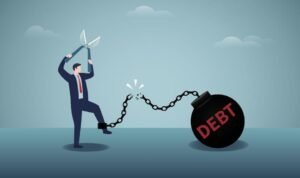When businesses or individuals face overdue payments, finding a trusted debt collection agency in Indonesia becomes a vital step to secure financial stability. Debt collection agencies act as intermediaries who ensure that creditors can recover what is rightfully owed to them, without jeopardizing professional relationships or violating legal frameworks. In a dynamic economy like Indonesia, where small, medium, and large enterprises thrive alongside growing consumer markets, the role of reliable debt collectors cannot be underestimated.
Debt recovery is not only about pursuing unpaid invoices. It involves legal compliance, strategic communication, negotiation, and in many cases, mediation between the debtor and creditor. A reputable collection agency bridges these aspects by offering professional assistance tailored to the client’s needs. This ensures the process runs smoothly while minimizing reputational risk.
For many organizations, particularly those handling multiple clients or customers, outsourcing debt collection is far more efficient than handling the process internally. It allows businesses to focus on growth while leaving the complexities of financial recovery to professionals. Agencies like Master Debt Collector have emerged as reliable partners for companies and individuals in Indonesia who value efficiency, transparency, and legal compliance.
The Importance of Debt Collection Services in Indonesia
Debt collection services play a critical role in maintaining financial ecosystems. In Indonesia’s expanding business environment, unresolved debts can create major disruptions. Cash flow problems are among the most common challenges for businesses, and overdue payments are often the root cause. Without effective recovery systems, even profitable enterprises may struggle to sustain operations.
Professional debt collection agencies provide structured approaches to debt recovery. They are familiar with cultural nuances, negotiation techniques, and Indonesian legal frameworks that govern financial disputes. By operating within these boundaries, agencies protect creditors from unnecessary legal risks. Furthermore, they implement strategies to maintain a respectful and professional relationship between creditors and debtors, which is especially important in Indonesia’s relationship-driven business culture.
Another crucial aspect is compliance with regulations. Agencies must understand the Indonesian Civil Code and debt-related laws. They often collaborate with legal experts to ensure all recovery efforts are aligned with national regulations. For example, institutions such as Indonesia’s Financial Services Authority (OJK) regulate aspects of financial and credit services, ensuring that debt recovery processes remain ethical and transparent. This oversight assures both creditors and debtors that the collection process respects the rule of law.
Characteristics of Trusted Debt Collection Agencies
Not all agencies operate at the same level of professionalism, which is why choosing the right partner is essential. A trusted debt collection agency in Indonesia typically demonstrates several key characteristics:
Transparency: Reputable agencies provide clear agreements, outlining recovery strategies, timelines, and processes without hidden clauses. Clients know what to expect from the very beginning.
Legal Compliance: Trusted agencies always act in accordance with Indonesian law. They avoid aggressive or unlawful tactics that could harm the creditor’s reputation or lead to legal disputes.
Experienced Team: Professionals with backgrounds in finance, negotiation, and law bring expertise that significantly increases the likelihood of successful recovery.
Ethical Practices: Maintaining the dignity of both the debtor and creditor is important. Trusted agencies ensure communications remain respectful and professional.
Strategic Methods: Instead of one-size-fits-all solutions, effective agencies customize recovery approaches depending on the nature of the debt, the debtor’s profile, and the creditor’s industry.
These qualities are crucial in distinguishing professional agencies from those that prioritize short-term results at the expense of long-term credibility. For businesses and individuals seeking debt collection services, evaluating these characteristics is the first step toward finding a reliable partner.
Why Businesses Prefer Outsourcing Debt Recovery
Many companies, from SMEs to multinational corporations, choose to outsource their debt recovery needs to specialized agencies. The primary reason is efficiency. By engaging professionals, companies free up their resources and focus on core operations instead of chasing overdue invoices. This not only saves time but also reduces stress for internal staff.
Another advantage is the higher success rate. Professional debt collectors are trained to handle difficult negotiations and can often secure settlements faster than in-house teams. Their familiarity with debtors’ strategies and stalling tactics allows them to act decisively. Additionally, agencies use advanced tracking systems and databases to monitor repayment progress, ensuring no debt falls through the cracks.
Outsourcing also adds a layer of neutrality. Debtors are often more responsive to third-party collectors than to direct requests from the creditor. The presence of a professional intermediary signals seriousness, encouraging quicker settlements. This dynamic is particularly effective in Indonesia, where maintaining harmonious business relationships is a priority.
Ultimately, outsourcing debt recovery is not just about reclaiming money; it is about sustaining financial health and allowing businesses to grow without disruptions caused by overdue debts.
Debt Collection and the Indonesian Legal Landscape
In Indonesia, debt collection operates within a well-defined legal structure. Creditors and debt collectors must adhere to national laws to avoid violating debtor rights. Trusted agencies prioritize compliance with these regulations to maintain legitimacy.
One of the most significant aspects of the legal framework is ensuring that all communication with debtors is conducted fairly. Harassment, threats, or unlawful pressure are strictly prohibited. Professional agencies understand this boundary and employ negotiation-based strategies. In cases where debtors refuse to cooperate, agencies may work with legal teams to escalate the issue through court proceedings, but always within the confines of the law.
The legal environment also requires collectors to stay updated on regulations enforced by government authorities, such as OJK. This ensures that creditors receive guidance aligned with financial laws and ethical standards. By working with agencies that respect these boundaries, businesses protect themselves from reputational damage and legal consequences.
Trusted agencies in Indonesia not only recover debts but also provide advisory services. They help businesses design stronger contracts, assess debtor risks, and create preventive strategies to reduce future defaults. This legal awareness transforms debt collection into a holistic financial management tool.
Choosing the Right Debt Collection Partner in Indonesia
Selecting the right partner is perhaps the most critical step in debt recovery. The market in Indonesia offers many options, but not all agencies deliver the same level of professionalism. To choose wisely, businesses and individuals should consider the following:
Reputation: Research the agency’s history, reviews, and case studies. Long-standing agencies with proven success inspire greater confidence.
Compliance Track Record: Ensure the agency operates within legal frameworks and avoids practices that could invite disputes.
Communication Style: Professionalism and respect in communication are non-negotiable for sustainable recovery.
Industry Knowledge: Agencies familiar with the creditor’s industry understand unique challenges and debtor behaviors.
Support Services: Beyond collection, some agencies provide consultation, risk assessment, and preventive solutions.
Working with established firms like Master Debt Collector ensures that clients benefit from years of experience, ethical standards, and efficient recovery strategies. Such agencies stand out because they combine expertise with a customer-oriented approach, balancing creditor needs with debtor sensitivities.
The Future of Debt Collection in Indonesia
As Indonesia’s economy continues to grow, the demand for professional debt recovery services will expand. Digitalization is also reshaping the industry. Agencies are beginning to adopt technology-driven solutions such as automated reminders, digital case management systems, and AI-powered debtor analysis. These innovations streamline processes and improve recovery rates.
Moreover, the integration of financial education into debt collection services is gaining importance. Agencies are not only focusing on recovery but also helping debtors understand financial responsibility, thereby reducing the likelihood of recurring defaults. This dual approach benefits the entire economic ecosystem, creating healthier creditor-debtor relationships.
In the coming years, we can expect to see stricter regulations and higher expectations for ethical conduct. Agencies that embrace transparency, technology, and legal compliance will be the most trusted partners in the debt recovery landscape.
Conclusion
Debt collection in Indonesia is more than just chasing overdue payments. It is about maintaining financial stability, protecting relationships, and ensuring compliance with legal standards. By working with a trusted debt collection agency in Indonesia, businesses and individuals gain access to structured recovery strategies, professional expertise, and peace of mind.
Agencies like Master Debt Collector represent the standard of reliability and professionalism that creditors seek. With the right partner, debt recovery becomes not only efficient but also ethical, safeguarding reputations while securing financial outcomes.
For companies and individuals facing overdue payments, the choice is clear: trust in professional agencies that combine experience, compliance, and ethical practices to deliver sustainable solutions.








